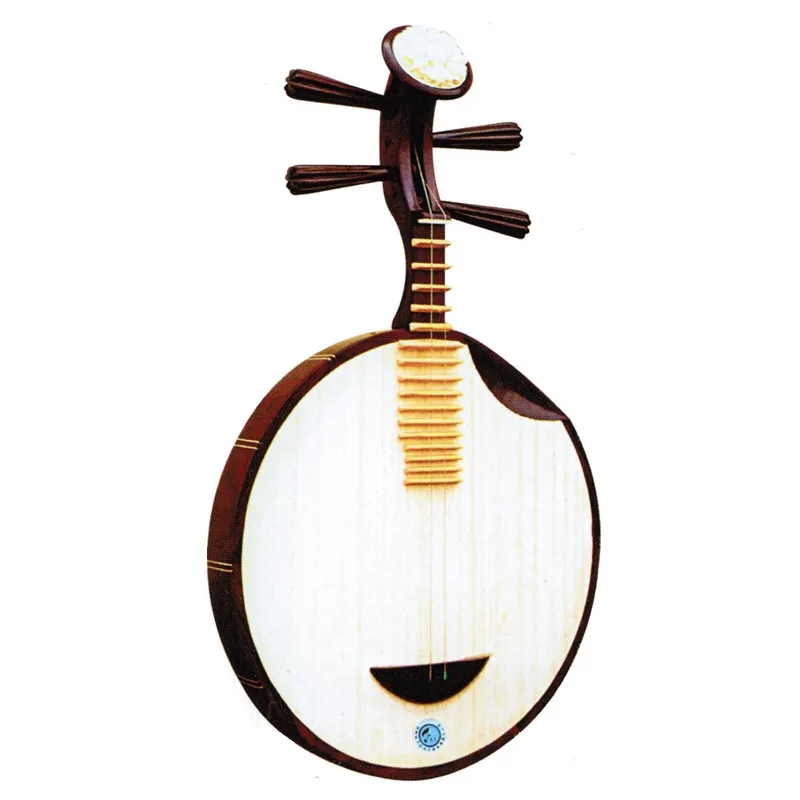Practical application of Yueqin
The Yueqin can be used for solo, instrumental ensemble and to accompany song and dance, opera, and rap music. It is an accompaniment instrument for operas such as Peking Opera, Pingju Opera, Henan Opera, Chu Opera, Xi Opera, Gui Opera and Taiwan Gezi Opera.

In the field of Peking Opera, Yueqin, Jinghu and Jingerhu are collectively known as the three major pieces. Henan Opera uses a large octagonal fretless moon qin to accompany it. Yueqin is also used to accompany rap music in Sichuan's voiceless tone. This form of folk art was developed from folk songs during the Qianlong period of the Qing Dynasty. It is deeply loved by the people of Sichuan. Pipa or Yueqin accompany, so there is a saying of "singing the pipa" or "singing the moonqin"; after the 1950s, Sichuan's unvoiced sounds have been continuously enriched and improved, and the accompaniment instruments have also added Huqin, Wanqin, sandalwood and bamboo drums.
In the Yi area, the Yueqin is the main accompaniment instrument for folk songs and dances, and it also accompanies the Yi opera born in the 1950s. In Longlin, Guangxi, the Miao people often use the Yueqin to play instrumental ensembles or solos. In Hunan Channel, which is known as the "Hometown of Music", the Dong people often play the Yueqin together with Lusheng and other musical instruments. In Dali, Yunnan, the yueqin is a stringed musical instrument second only to the Bai nationality's leading three-stringed string, and is also used to accompany Bai Opera. Yueqin plays an important role in the musical life of the Yi, Hani, Miao and other ethnic minorities, and is often used in the social and romantic life of young men and women. In the traditional festivals of various ethnic groups and the festive "song dance" and "slope jumping" activities, it is an indispensable musical instrument for conveying feelings. One or more of the violin players dance while playing, and then the crowd dances in a circle.
 渝公网安备 50010702504639号
渝公网安备 50010702504639号